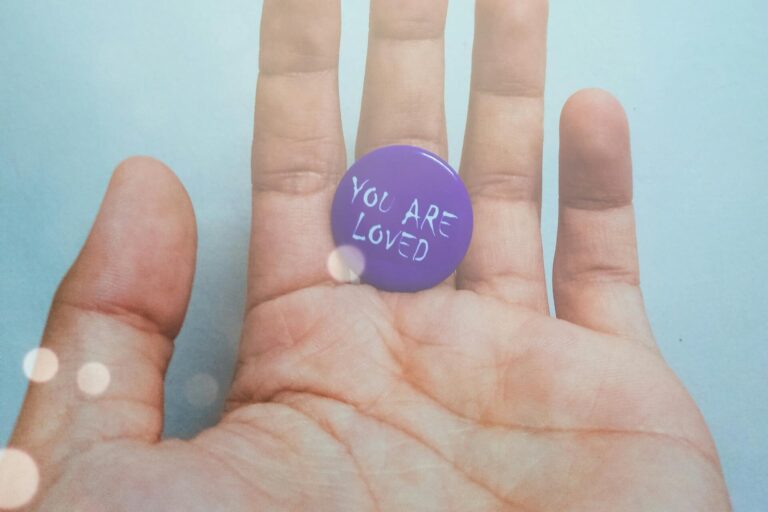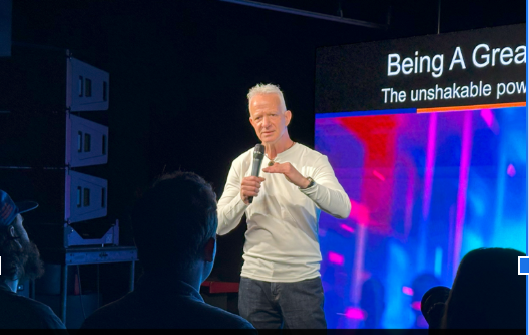How Past Experiences Affect Your Mental Wellness Today
We all lead busy lives filled with high-pressure jobs, family responsibilities, and demanding schedules that can make it challenging to maintain positive and healthy relationships. While these external pressures affect us all, for those who have experienced past trauma, navigating daily life can be particularly challenging. Past anxiety or trauma has a way of seeping into our active daily lives, and the stress of our current responsibilities can act as a powerful trigger, unexpectedly unearthing old, unresolved inner conflict and traumas that we may have thought were long buried.Think of trauma as an unhealed wound within. While it may scab over and become less acutely painful over time, it remains sensitive. Not only sensitive, but re-enact in the present. External events that resonate with the original traumatic experience – even if only in subtle ways – can poke at this wound, causing the old pain, fear, and dysregulation to resurface. The “then and there” comes to the “here and now”. Today’s widespread feeling of unsafety, unknown, the constant exposure to conflict and potential threat in the news, and the general sense of a world on edge can unfortunately create fertile ground for these dormant traumas to be reactivated.
For someone who experienced childhood neglect or abuse the current feeling of societal neglect or a lack of care from those in power can echo the original feelings of being unseen and unimportant. For a survivor of violence, news reports of aggression and conflict can trigger the same physiological responses of fear and hypervigilance experienced during the initial trauma. Economic instability can reignite the deep-seated anxieties of someone who grew up in poverty or experienced financial insecurity. The feeling of a fractured social fabric can mirror the isolation and lack of belonging felt by those who experienced relational trauma.
The insidious nature of these triggers is that they often operate beneath the surface of our conscious awareness. We might find ourselves feeling inexplicably anxious, irritable, or withdrawn without immediately connecting these feelings to past experiences. The body, however, remembers. The nervous system, once attuned to threat during a traumatic period, can become hyper-reactive, interpreting current uncertainties as a sign of impending danger, even if the present situation doesn’t objectively warrant such an intense response.
This re-emergence of old trauma can be incredibly destabilizing. It can lead to flashbacks, intrusive thoughts, heightened anxiety, difficulty sleeping, emotional numbness, and a return to maladaptive coping mechanisms. The feeling of being overwhelmed by both the present anxieties and the resurfacing pain of the past can create a significant burden on our mental and emotional well-being.
While we cannot control the events unfolding in the world around us, we can take proactive steps to build resilience and protect ourselves from having today’s unrest trigger past trauma. Here are three key tips to help prevent this from happening:
- Strengthen Your Foundation of Self-Awareness: Cultivating a deep understanding of your personal history, including any past traumas and your typical responses to stress and triggers, is crucial. Engage in practices like journaling, mindfulness, or therapy to explore your emotional landscape. Recognizing your vulnerabilities and the specific types of situations or feelings that tend to activate old wounds allows you to be more vigilant and proactive in managing your responses. When you notice a strong emotional reaction that seems disproportionate to the present situation, gently inquire within: “Does this feeling remind me of anything from my past?”
- Establish Robust Self-Regulation Skills: Developing effective self-regulation techniques provides you with tools to manage intense emotions and prevent them from spiraling into a retraumatization response. Practices like deep breathing exercises, progressive muscle relaxation, grounding techniques (engaging your five senses), and mindful movement can help to calm your nervous system when it becomes activated. Regularly practicing these skills, even when you feel relatively calm, builds your capacity to access them during times of stress and potential triggering. Having a toolkit of self-soothing strategies empowers you to navigate unsettling external events without being overwhelmed by past pain.
- Create and Maintain Supportive Connections and Boundaries: Trauma often thrives in isolation. Building and nurturing strong, supportive relationships provides a buffer against the isolating effects of both current anxieties and past trauma. Lean on trusted friends, family, or support groups during challenging times. Additionally, establishing healthy boundaries is essential. This includes limiting your exposure to news and social media if you find it triggering, saying “no” to commitments that feel overwhelming, and protecting your time and energy. Surrounding yourself with understanding and supportive people while creating healthy boundaries can create a sense of safety and containment that helps to prevent external unrest from breaching your inner peace and reactivating old wounds.
Self-Regulation and Co-Regulation in This Topic: The way today’s unrest can trigger past trauma highlights the importance of both self-regulation and co-regulation. When external events resonate with past experiences of unsafety, our internal capacity for self-regulation can be overwhelmed, leading to dysregulation. Strengthening self-awareness and practicing self-regulation skills (as outlined in the tips) are crucial for managing these internal responses. Furthermore, creating and maintaining supportive connections emphasizes the role of co-regulation. Feeling seen and validated by others can help to soothe and stabilize our nervous system when triggered, providing a sense of shared safety that can counteract the destabilizing effects of external unrest and past trauma. Healthy boundaries also play a role in self-regulation by limiting exposure to potential triggers.
An Example of what we “do” in our membership.
Reflecting on Triggers: A Journaling Exercise
Take some time to reflect on how the current climate of unrest might be impacting you and potentially triggering past experiences. Use the following prompts to guide your journaling:
- Current Feelings of Unrest: How would you describe your emotional state in response to current global or societal events? What specific feelings are present?
- Past Experiences of Unsafety: Reflect on any past experiences in your life where you felt significantly unsafe, threatened, or overwhelmed. What were the circumstances? What emotions did you experience?
- Potential Connections: As you consider the current unrest and your past experiences of unsafety, do you notice any connections or resonances between the two? Are there any similar feelings, thoughts, or physical sensations that arise?
- Your Triggers: What specific types of news, social media content, or situations in the current climate seem to be most triggering for you? What are your typical reactions when triggered?
- Self-Regulation Strategies: What self-regulation techniques do you currently use or could you begin to use when you notice yourself feeling triggered by current events? (e.g., deep breathing, grounding, taking a break).
- Supportive Connections and Boundaries: Who are the supportive people in your life you can reach out to during challenging times? What boundaries can you establish with news and social media to protect your well-being?
- Small Steps Towards Resilience: What is one small step you can take this week to strengthen your self-awareness, practice a self-regulation skill, or nurture a supportive connection to build greater resilience in the face of external unrest?
Remember that acknowledging these connections and developing coping strategies is a powerful step towards healing and preventing the past from overwhelming your present. Be gentle and patient with yourself as you navigate this process.
If you are interested in learning more about our membership and/or workshops, please contact us .







